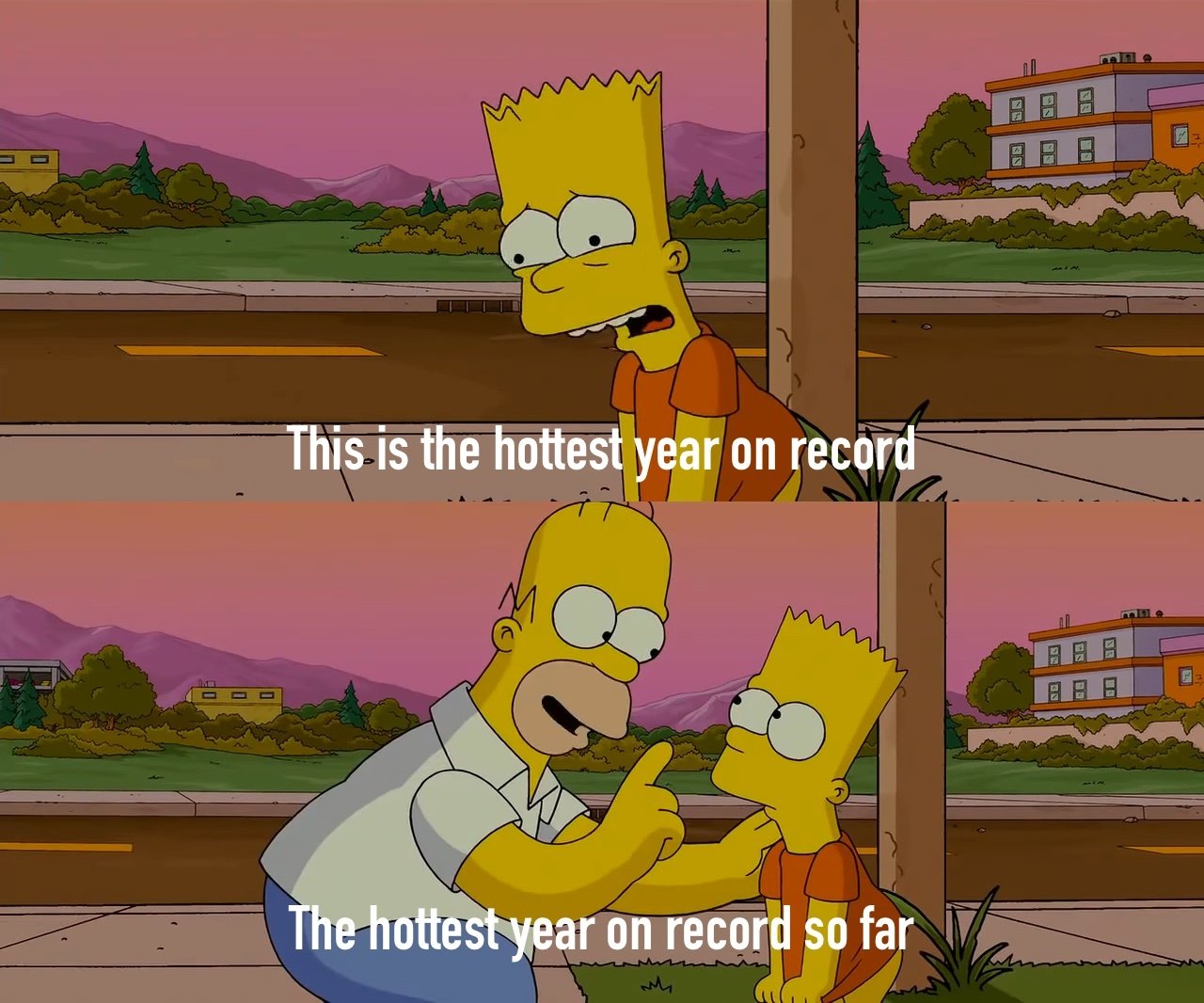Hot days and hot nights dominated much of the country this year in Australia, despite some severe cold snaps during the winter. This resulted in Australia coming away with its second hottest year on record, overall, since 1910, when reliable national data became available.
A staggering 78.9 per cent of the world’s coral reef areas — from the Atlantic to the Pacific to the Indian oceans — have so far been subjected to bleaching-level heat stress.
It included the seventh mass bleaching of the Great Barrier Reef since 1998, and fifth in eight years.
Contemplating an up coming Federal election, I wonder what goes through voters minds when they see all of this ?
The hottest year on record so far

It is now the default. News is now if it is not the hottest on record.
Going back a long way too:
https://xkcd.com/1732/
Why is a gold rubicks cube in this photo?
I think that side is white, and just looks golden from the mud
From “water report” details:
In 2024, months with record-low precipitation were 38% more common than during the 1995-2005 baseline period, while record-high 24h rainfall extremes were 52% more frequent.
Water-related disasters caused major damage in 2024. They caused over 8,700 deaths, displaced 40 million people, and inflicted more than US$550 billion in damages. Flash floods, landslides, and tropical cyclones were the worst types of disasters in terms of casualties and economic damage.
The likelihood of monthly records set should go down each year, in a non global warming world, because the bar always gets higher. The damages number is a big insurance factor, and the data does not include forest fires.
A missing topic in OP is that Arctic sea ice extent and volume are at extreme record low levels currently, that may lead to a blue north pole next summer. Hudson and Baffin Bay and Labrador sea being the main record low spots also means an early spring for Greenland and more melting on its west coast.
Arctic summer temperatures have been pretty stable since 2016. Ice extent and volume keeps declining because current temperatures are enough for ocean to get warmer each year both earlier and later in melt season that delays and weakens total freezing.
Better vote for those guys that want to do nuclear because that’ll totally be cheap and quick to build.
I’m most concerned with water flow, because that’s what I can easily note around here. FFS, NW Florida should never go 2-months without rain. Here are examples of the sort of impacts no one thinks on:
2 of 3 swampy ponds at my camp dried out, turned to mud the last 2 summers. Dragonflies lay their eggs there, takes 2 years for the nymphs to mature and fly about. Any dragonfly mama unfortunate enough to have laid eggs in those ponds lost it all. This year I had fewer dragonflies, and guess what, more mosquitoes.
I had to damn off the flow from the top pond to preserve it, which will kill the lower pond next summer. First time I’ve done something like this, we shall see.
If you march south a few hundred meters (damned hard!), you’ll come across streams feeding the main creek. Really beautiful. But you will see where the water is supposed to be by observing the ground. The water ain’t there. There are ancient cypress trees growing too far inland, they’ll die. And BTW, I’ve never seen a single fish, frog or turtle in that wild creek. Ain’t that some shit?





